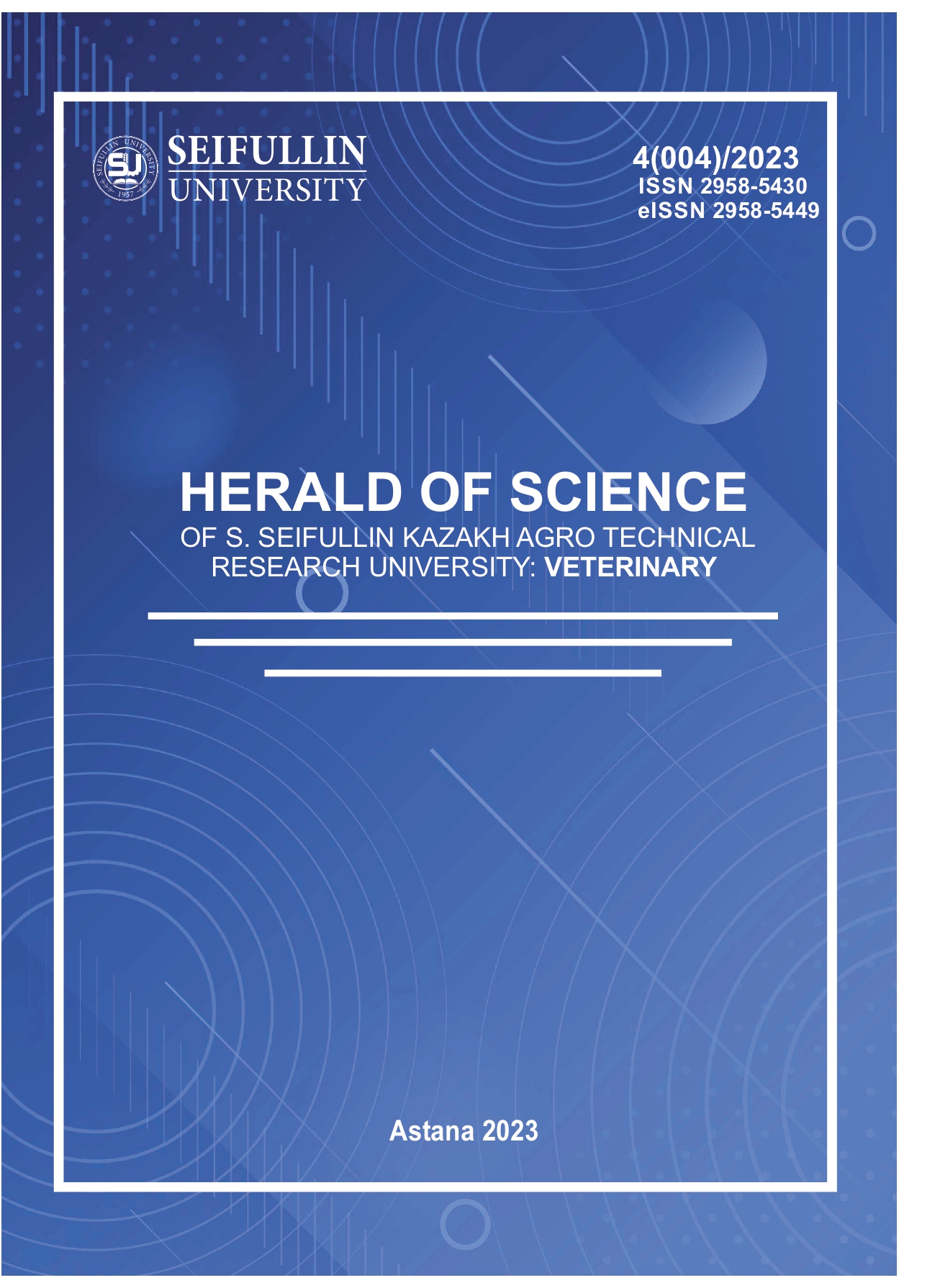EFFECT OF HUMIC FEED ADDITIVE ON METABOLIC PROCESSES AND PRODUCTIVITY OF BEEF CATTLE
DOI:
https://doi.org/10.51452/kazatuvc.2023.4(004).1542Keywords:
cattle; feed additive; humic substances; meat productivity; po-tassium humate.Abstract
The use of made in Kazakhstan organic and mineral feed additives to in-crease the meat productivity of cattle is important for the agro-industrial complex of the Republic. During the study, qualitative and quantitative analysis of raw materials was made. Quality control of the finished feed additive was carried out following the requirements of the State Pharmacopoeia of the Republic of Kazakhstan. The studies were conducted in accordance with the requirements of the Technical Regulations approved by the Decree of the Government of the Republic of Kazakhstan dated April 23, 2008 No. 380, Regulation No. 7-1/625 dated 11/28/2014 and Regulation (EC) No. 1831/2003 of the European Parliament and of the Council of September 22, 2003, on additives for use in animal feeding. Kazakh potassium humate of the Maykubensky deposit is sterile, non-pyrogenic, non-toxic, and harmless, with an average pH of 11.0-1.0, and has a biological effect on laboratory animals (white mice). The effectiveness analysis in the production experiment allowed us to identify the positive effect of feed additives on metabolic processes and increasing meat productivity in bulls. Regardless of age, on the 7th day of taking the feed additive of potassium humate, the calves' coats acquired a noticeable shine and a bright color, and shedding was completed with-in a month. Clinical signs of metabolic disorders and vitamin deficiency, detected in the farm at the time of the experiment in some animals, pass through 20-30 days from the beginning of the application of the feed additive. The optimal scheme for the use of feed additives was tested on the Kazakh meat breed Akbas, and the concentration of humic substances was selected for the maximum mani-festation of the biologically active effect. Animals became mobile and active, their rumination became more active, they grew noticeably, and the average daily weight gain increased by 7.6-8.9%.

